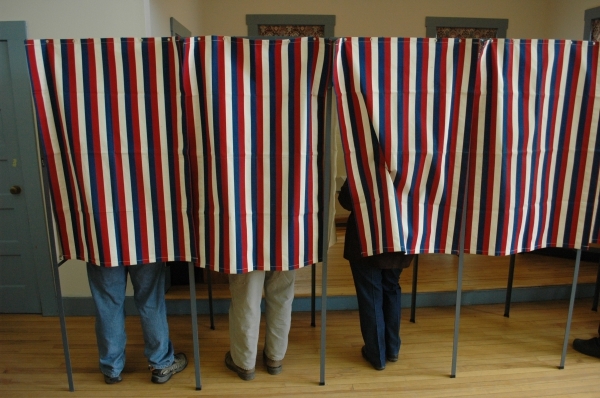Recent unsupported allegations and sensationalized reporting are sowing seeds of doubt about our democratic process. This doubt undermines voter confidence and calls into question whether all voices will be heard on Election Day, Tuesday, Nov. 8.
As Vermont's secretary of state and chief elections officer, a former state senator, a former city councilor, and a lifelong voter, I've been following our elections my entire adult life.
I am frustrated by the careless way in which these stories attack our very democracy. They show a real lack of understanding of the true risks.
I'd like to set the record straight.
* * *
Vermont's elections will not be “rigged,” and “voter fraud” is essentially nonexistent here and across the United States. In fact, in a Washington Post blog post by Justin Levitt, the constitutional law professor at Loyola Law School reported that he has documented just 31 instances of potential voter impersonation between 2000 and 2014. According to Levitt, more than 1 billion ballots (local, state, federal) were cast in that period.
Vermont's elections process is nonpartisan, transparent, and decentralized to the town level. Any hacking or altering of results would require a conspiracy on a massive scale.
I can assure Vermonters that we have taken every precaution to insure our elections are secure. I'm confident that my elections team, our IT security staff, law enforcement, and local election officials will continue to protect the integrity of our electoral process.
* * *
I have faith in our system, and you should, too. Here's why:
• Vermont's election process is decentralized - to the local level. Someone trying to influence or change an election would have to hack into each town's vote tabulators.
Our tabulators are not connected to one another, to the internet, or to any other software - either hard-wired or wireless.
It has been suggested that the memory cards in these machines could be tampered with, but from the time the cards are delivered, two to four weeks before the election, the clerks are instructed to keep them secure. As long as the memory card is stored securely, it cannot be manipulated.
The clerks complete a logic and accuracy test on the memory cards 10-14 days before the election.
• Vermont requires a paper ballot for our statewide elections, and by law it must be sealed, secured, and stored for 22 months.
• After each general election, we randomly audit several towns to ensure that results are accurate.
* * *
Another story that makes for great headlines is the risk of cyberattacks.
Are we vulnerable? There is always a risk, and there will always be vulnerabilities, but the risk has been overstated. There are only two confirmed cases of successful hacking in other states, and those breaches were of voter registration databases, having nothing to do with election results.
In Vermont, we have taken many precautions to secure our systems and data, including a cyber risk assessment, penetration test, and firewalls. We are on high alert and in contact with federal law enforcement to identify and respond to any threats as they arise.
* * *
I have faith in our hard-working city and town clerks, local elections officials, and volunteer poll workers who conduct Vermont's elections. We work directly with those individuals, providing training, supplies, and other support.
They appreciate voting and cherish it as a fundamental right. They know what it means for democracy and are passionate about ensuring free and fair elections and careful, accurate results. To say that elections will be “rigged” or “hacked” or that voter fraud is “very common” ignores the facts and insults their integrity.
Regrettably, the more harmful effect of casting unfounded aspersions is to rattle our confidence and prevent us from voting or trusting the outcome of those votes - a direct attack on democracy.
That should concern us all, making us even more determined not to allow such threats to work.
While there will always be vulnerabilities and risks, Vermonters should know they can go to the polls on Nov. 8 and cast their ballots with the full expectation that their votes will be counted and their voices will be heard.
Remember, your vote is your voice!
